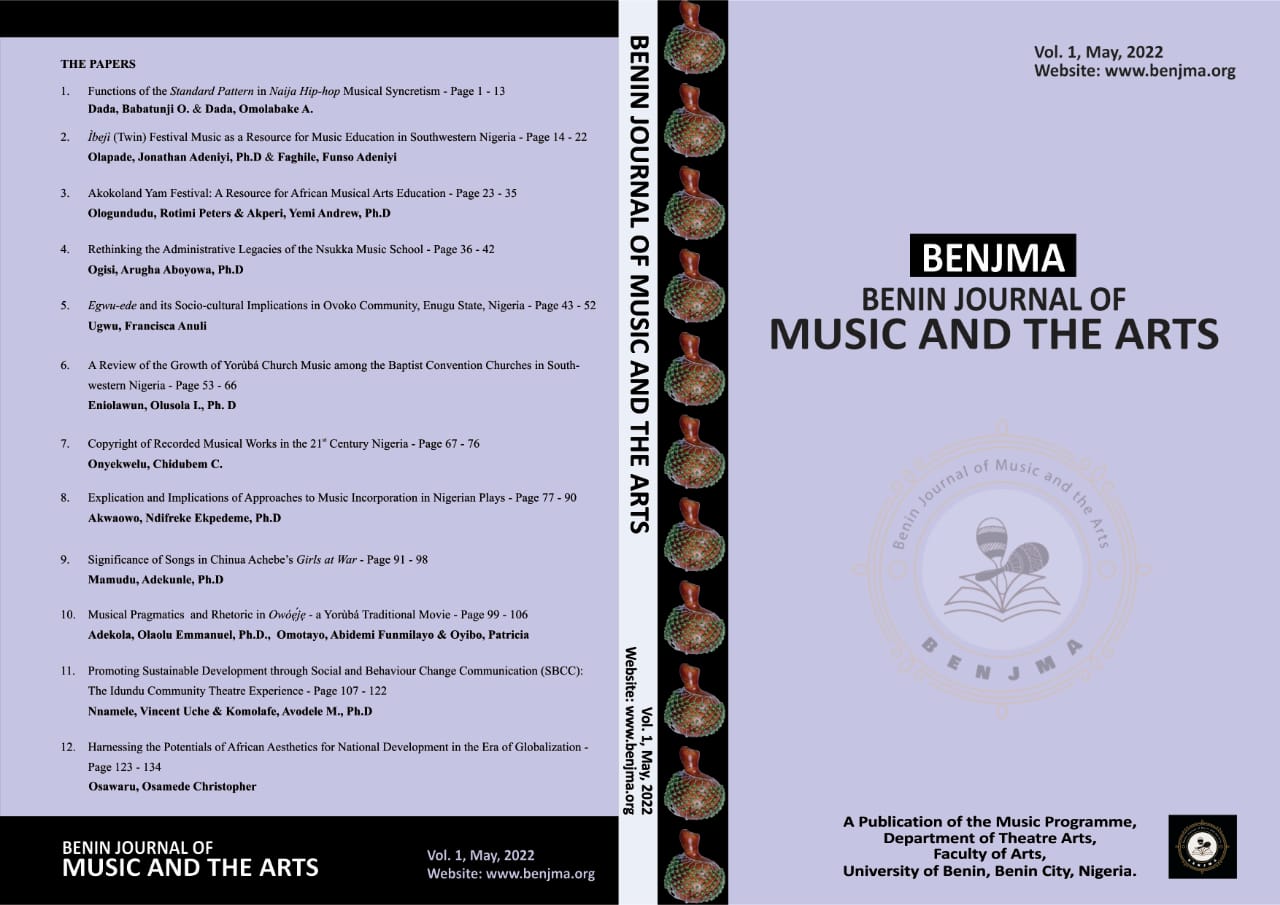
Editorial Note
Editorial Note
The Benin Journal of Music and the Arts (BENJMA), which was established in 2021, is a publication of the Music Programme of the Department of Theatre Arts, Faculty of Arts, University of Benin, Benin City, Nigeria. BENJMA operates an open access policy of internet publication to facilitate easy accessibility and wide readership, and also produces complimentary print versions to meet the desire of readers who would want to obtain hard copies as alternative
and/or supplementary acquisitions. BENJMA is designed to publish at least one (1) Issue yearly, and to undertake the publication of Special Issues from time to time when the need arises.
BENJMA receives and publishes well-researched scholarly articles in music and the arts to promote scholarship and support the dissemination of research findings at local and global levels. It provides the forum for discourses on the historical, contemporary, and evolving subject matters that would serve as bases for the formation of future perspectives, the making of impactful predictions, and the galvanisation of developmental ideas.This present publication, Volume 1, is the maiden edition of BENJMA published in May 2022. This volume is a kaleidoscope of articles on music and the arts, featuring twelve (12) articles from a range of thematic areas such as musical syncretism, traditional festival, music education, music administration, church music, music copyright, music in drama, music in literature, music in movie, theatre for development (tfd), and aesthetics. Readers would most assuredly find the articles interesting, informative, educative, and thought-provoking.
Volume 1 , May 2022
This study examines the impact of Princess Banke Ademola's radio programmes on promoting art music in Nigeria. Through a comprehensive analysis of her radio shows, interviews, and archival materials, this research investigates how her programmes have contributed to the development and popularisation of art music in Nigeria.
Nigeria is a nation rich in natural and human resources, but it is also inundated by acute environmental degradation, which affects its marginalized communities. This has sparked a strong need for environmental advocacy, justice, and awareness, with music serving as a veritable mechanism for the actualization of this quest. This paper investigates the relationship between environmental justice, music, and law in Nigeria.
In Nigeria, the foundation of serious sacred or liturgical musical knowledge and practice is mostly laid and grown in local churches, where many choir leaders who provide musical guidance lack formal music training. As a result, limited musical knowledge is passed down to the soloists and the accompanists they lead.
This research explores the practice of choral conducting in contemporary Ibadan, focusing specifically on select choral directors within the Ibadan metropolis. Through qualitative analysis, the study investigates the pedagogical approaches, stylistic variations, and cultural influences that shape choral music in this region.
The end of the Nigerian Civil War in 1970 marked a critical period in the country’s socio-political evolution, during which the rebuilding of national unity and the fostering of a collective identity were prioritised. By means of a critical discourse analysis of Highlife lyrics and a historical appraisal of the genre’s impact in Nigeria, the role of Highlife music as a cultural agent in the processes of national reconciliation and nation-building during the post-war era is investigated in this study.
